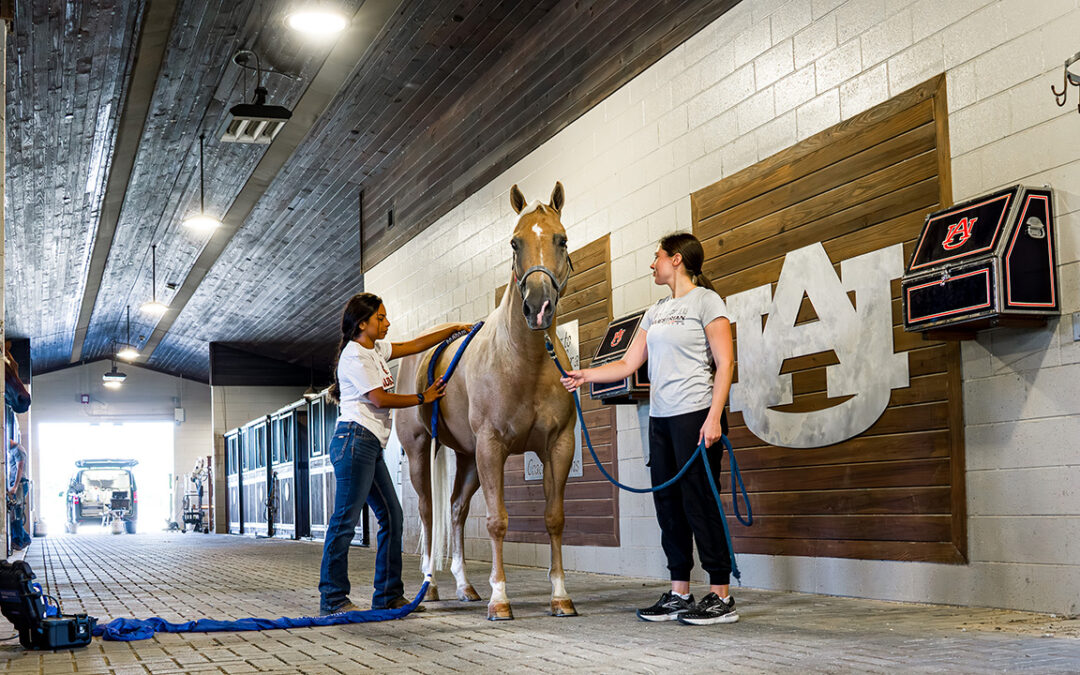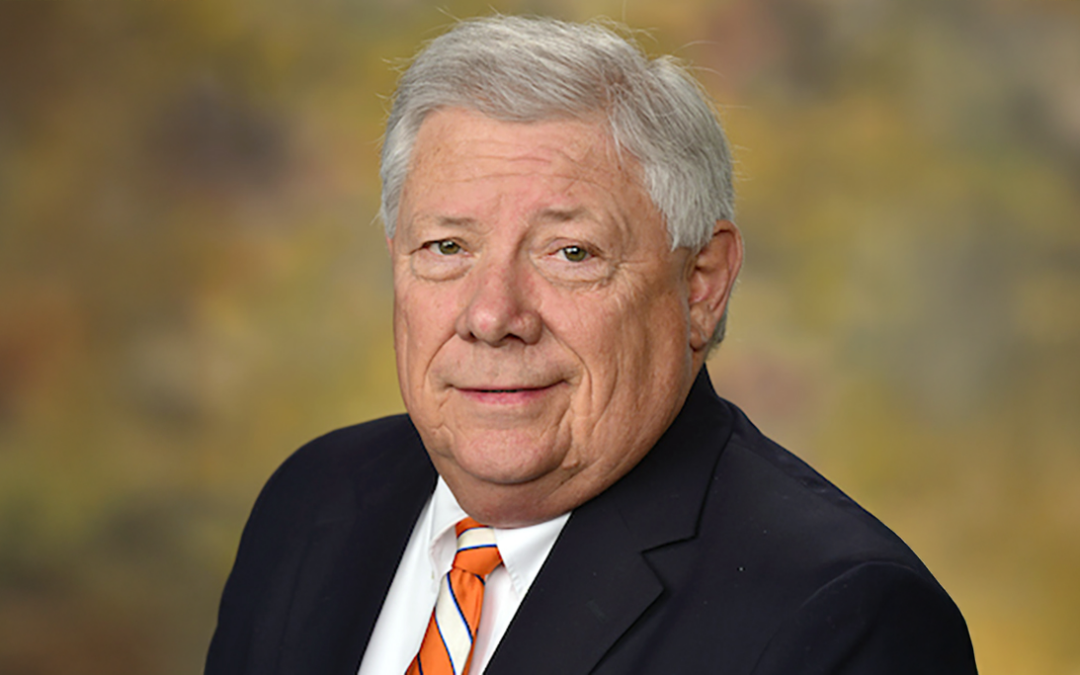by NATHAN KELLY
One of the best kept secrets of summer barbecues in Auburn is at the corner of Wire Road and Shug Jordan Parkway: the Auburn University Lambert-Powell Meats Laboratory.
For students majoring in animal sciences, the meats lab is a place to learn, observe and get hands-on experience. For faculty, it’s a hub for meat-quality, meat-processing and food-safety research. But for Auburn locals, the big draw is the lab’s retail salesroom, also known as the meat market.
Barney Wilborn, a Department of Animal Sciences alumnus who’s in his 10th year as meats lab manager, is proud of the reputation the market has built through word-of-mouth advertising only.
“We’re a ‘diamond in the rough’ facility,” Wilborn says. “Once people find us, the quality of our meats speaks for itself.”
But the salesroom is not a for-profit operation, Wilborn says.
“Our gross monthly sales average around $15,000, which is pretty good for a university-based meats lab but a drop in the bucket compared to a meat market in a grocery store,” he says. “All the money from sales is used to buy animals and to pay our workers.
“There’s rarely anything left over after that, but if we there is, we spend it on equipment repairs or extra student labor so that they get as much experience as possible,” he says.
The salesroom is open to the public Mondays through Thursdays from 2 to 5 p.m. and Fridays from 11 a.m. to 5 p.m.
“We always have a good selection of reasonably priced fresh beef and pork products, plus cured bacon, smoked sausages and smoked ham, and on occasion, we’ll have other products like pork barbecue or smoked brisket,” Wilborn says. “Probably our most popular item is our bacon, but you have to time it just right to find it here because we make it using a very traditional process that takes 14 days. When we do have it, it goes in a hurry.”
A Birmingham native, Wilborn admits he knew next to nothing about cattle or hogs or agriculture in general when he enrolled at Auburn in 1996 as a freshman animal sciences major, and some who knew him said that wouldn’t last. They figured he’d wind up changing to a major more in line with his family’s history in the construction industry.
Wilborn proved them wrong, though, earning his bachelor’s degree in animal sciences in 2000 and his master’s two years later.
His first job out of Auburn was as a food scientist with the Cargill Meat Solutions Research and Development Center in Wichita, Kansas, but in 2005, he and wife Robyn—a fellow animal sciences alum and a College of Veterinary Medicine graduate—returned to the loveliest village for his job as manager of the then-brand-new meats laboratory and hers as a faculty member in veterinary medicine.
As manager of the Lambert–Powell lab, Wilborn is responsible for ensuring that the lab’s meat-processing rooms, demonstration kitchen and classroom area, conference room and retail sales room are equipped and ready for the numerous research, teaching and outreach activities that take place day in and day out.
“Our mission here is to support the animal sciences department’s research, teaching and extension activities as they relate to the food end of animal production,” Wilborn says. “The department operates a beef farm and a hog farm right on campus, and when animals used in production research on the farms are harvested, they’re processed here so their carcasses can be evaluated, and then we sell the meat products in our salesroom.”
But wait: If the meat products sold in the market come from research animals, are they safe to eat? Absolutely, Wilborn says.
“The research done here focuses for the most part on finding the best ways to raise food animals, and a majority of our work involves evaluating different types of diets and management systems, so the products from our animals are actually on the cutting edge of quality and safety,” he says. “Also, our facilities are fully inspected, and all of the products available in our retail salesroom are produced under inspection and certified as wholesome and safe to eat.
“If there’s a case where one of our researchers is investigating a feed ingredient or pharmaceutical product that hasn’t been approved for use in food animals, we don’t sell the meat from those animals.”





